

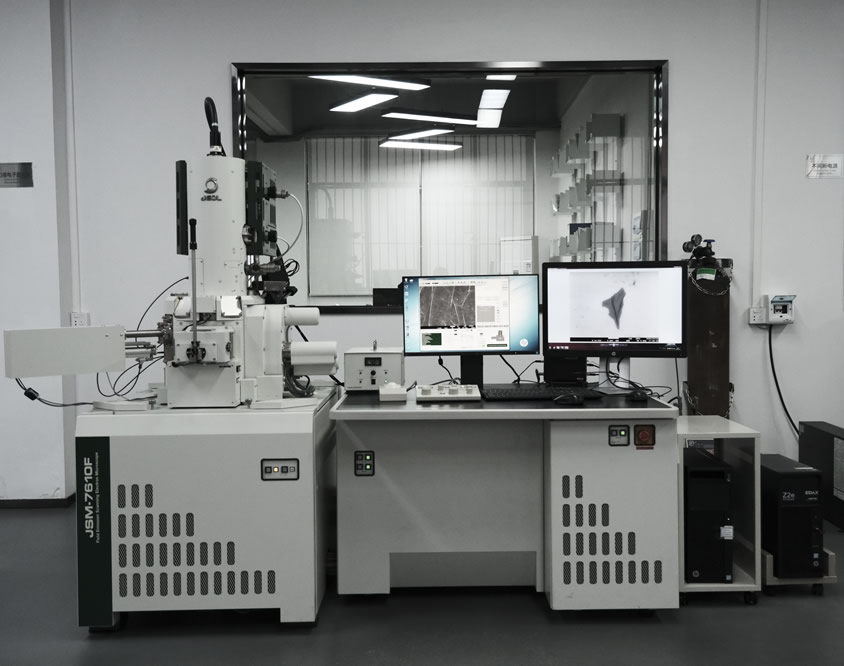
Model: Japan JSM-7610F
Function: The
JSM-7610F is a semi-in-lens high-resolution scanning electron microscope
equipped with a High Power Optics illumination system, enabling the acquisition
of high-resolution images of material phases. It features the Gentle Beam (GB
mode), which allows for the observation of shallow surface features of samples
using incident electron beams with energies as low as hundreds of electron
volts. Additionally, it is equipped with X-ray energy dispersive spectroscopy
(EDS) for the analysis of elemental composition and concentration in
micro-regions of materials.
Specifications:
Resolution: 1.0nm (15kV) / 1.3nm (1kV)
Acceleration Voltage: 0.1kV ~ 30kV
Magnification: 25 to 1 million times
Sample Chamber Size: Maximum sample diameter of 200mm
Beam Current Intensity: 1pA ~ 200nA
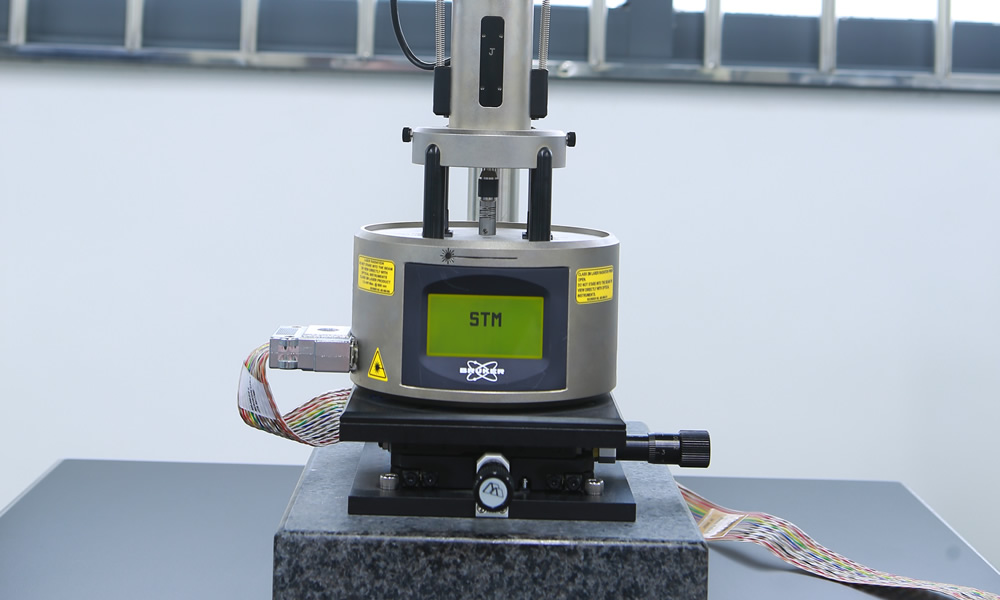
Model: German Multimode 8
Function: AFM can operate in vacuum, atmospheric, and even underwater environments. It can detect both conductive and semiconductor surfaces as well as insulating surfaces. With its high resolution and functionality, atomic-level imaging allows for real-time observation of surface local properties. This makes it widely used in physics, chemistry, materials science, electronics, and life sciences, rapidly evolving into a crucial tool for nanoscience research.
Specifications:
Lateral (X-Y) scanning range: 125μm × 125μm, vertical (Z) scanning range: 5μm
Multiple imaging modes:
Air tapping mode/contact mode
Liquid tapping mode/force modulation
Air force modulation/electrical field mode
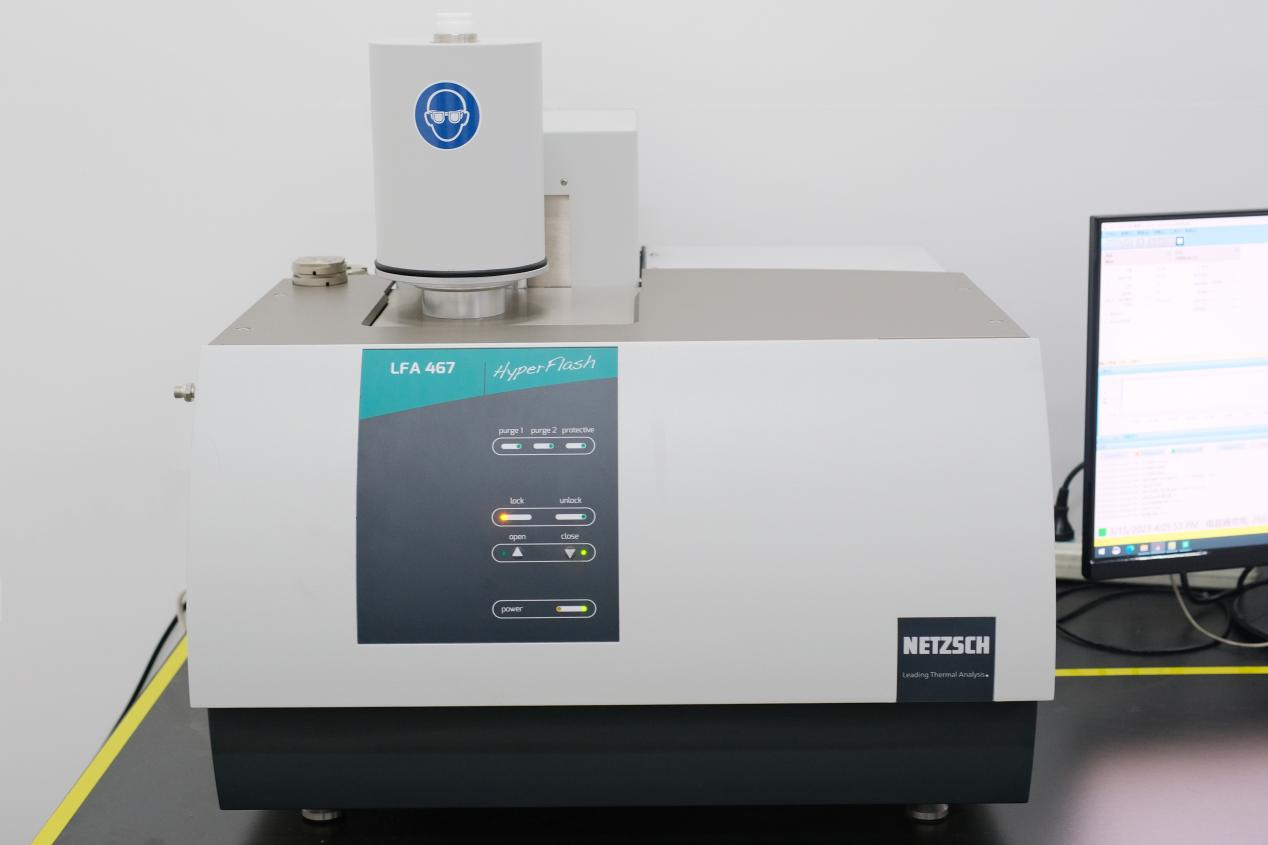
Model: LFA-467
Function: The flash method thermal conductivity tester from Germany's Netzsch can accurately measure the thermal diffusivity of samples ranging from 20℃ to 500℃, providing results for both lateral and longitudinal thermal diffusivity as well as thermal conductivity. This equipment boasts an extremely high sampling frequency, making it particularly suitable for testing high-thermal-conductivity materials such as thin films. It is also equipped with various test stands to meet the thermal testing needs of different samples.
Specifications:
Temperature range: 20°C ~ 500°C
Laser source: Adjustable energy xenon lamp
Test range: 0.1 ~ 4000 W/m·K
Sample forms: Thin films, solids, powders, liquids
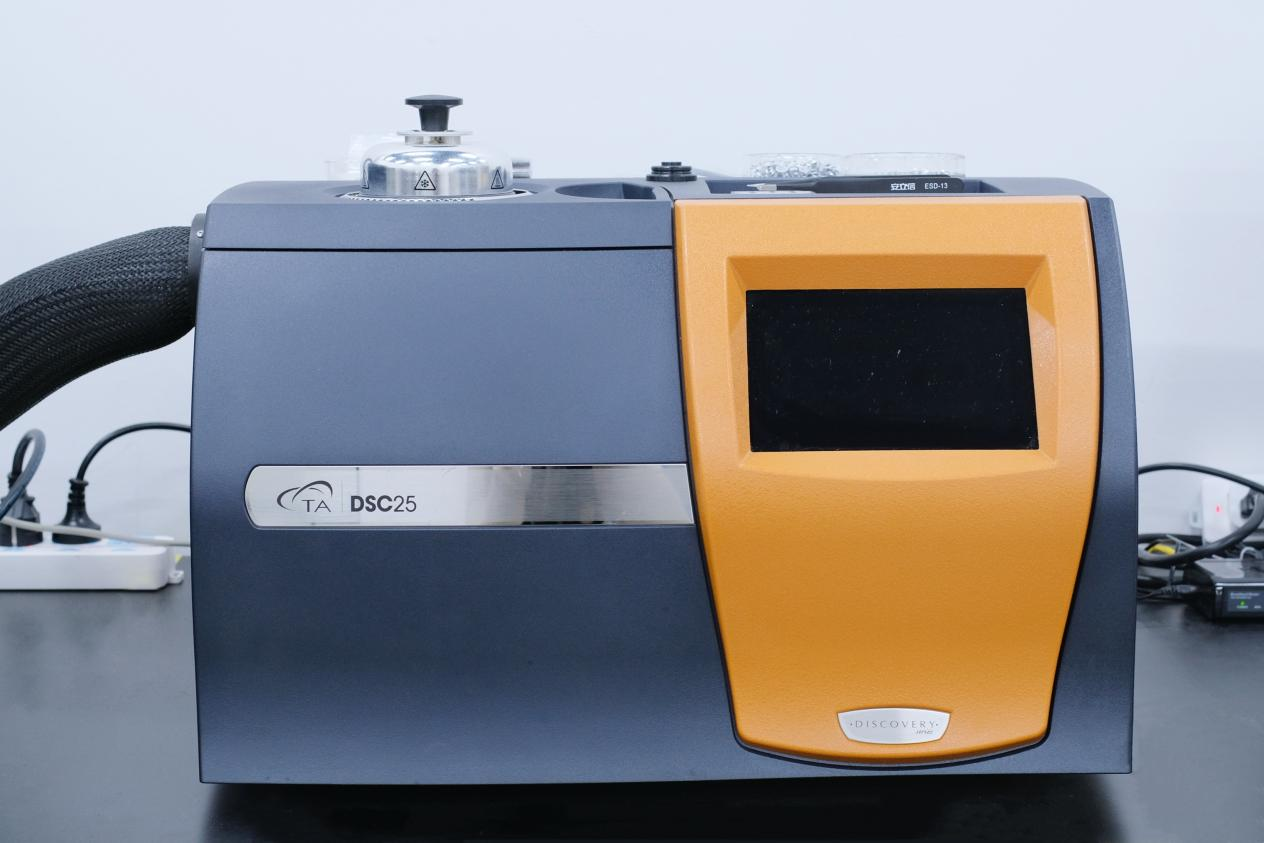
Model: DSC 25
Function: Under program-controlled temperature conditions, the thermal properties of test samples change with temperature or time, used to determine material phase lines such as solidification and melting points. As temperature changes, the relationship of heat flow and temperature between the test sample and reference is used to measure the sample's enthalpy, specific heat capacity, glass transition temperature, and more.
Specifications:
Baseline flatness: <100 µW (-50~300℃)
Baseline repeatability: <40 µW (-50~300℃)
Temperature range: -180℃~725℃
Temperature accuracy: ±0.1℃
Temperature precision: ±0.01℃
Enthalpy accuracy: ±0.1%
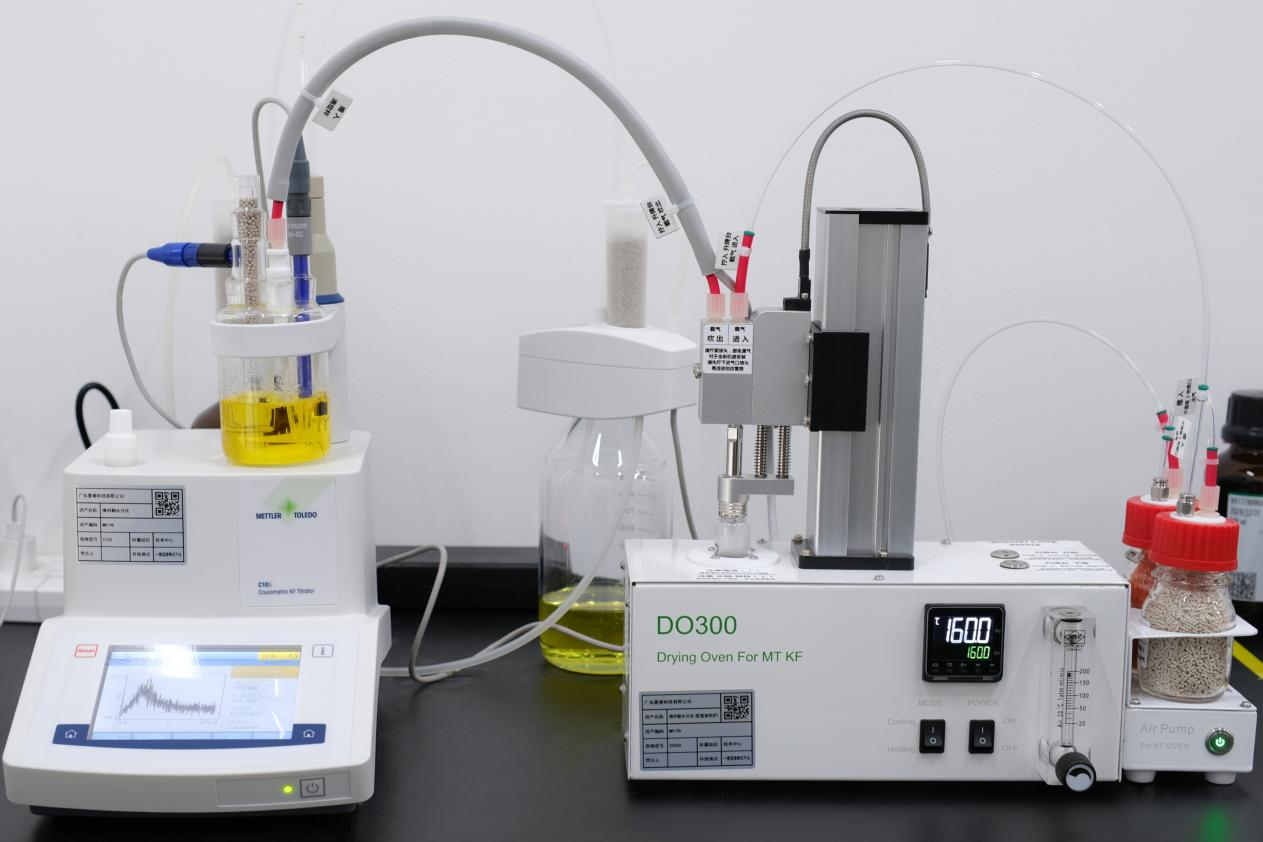
Model: C10S
Function: The Mettler C10S Karl Fischer moisture analyzer features a specially designed titration cell that minimizes environmental humidity interference, resulting in low background drift values. Combined with user-friendly operation, it allows for rapid and accurate determination of water content in samples ranging from 1 ppm to 5%. Additionally, it is equipped with a KF heating furnace, enabling the measurement of moisture content in both solid and liquid samples.
Specifications:
Testing range: 10µg-200mg
Resolution: 0.1µg
Measurement accuracy: 0.3% (>1mg H2O/sample)
Drift value online: <2µg/min
Electrode measurement range: -2000~2000mV
Electrode resolution: 0.1mV
Minimum sample volume: 0.1mC
Titration control accuracy: 0.1mC
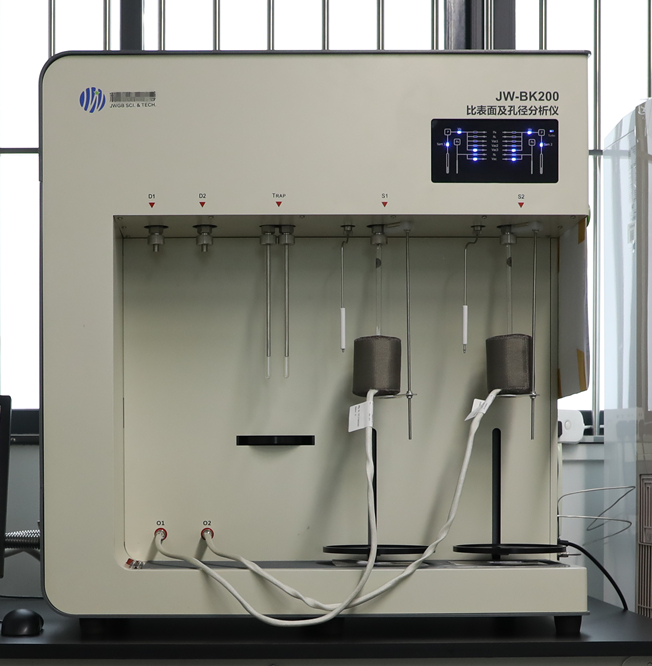
Model: JW-BK200B
Function: Specific surface area and pore size distribution are one of the important parameters to characterize the surface properties and pore structure of micro-nano powder materials. The JW-BK200B high-performance physical adsorption instrument can accurately and reliably solve the problem of specific surface area and pore size analysis of powder materials through static capacity method gas absorption.
Specifications:
1. Specific surface area testing range: 0.0001 m²/g to an unknown upper limit.
Standard sample repeatability (relative standard deviation): ≤ ±1.0%
2. Pore size testing range: 0.35 ~ 500 nm, precise analysis of micropores from 0.7 ~ 2 nm.
Median pore size repeatability (standard deviation): ≤ 0.02 nm.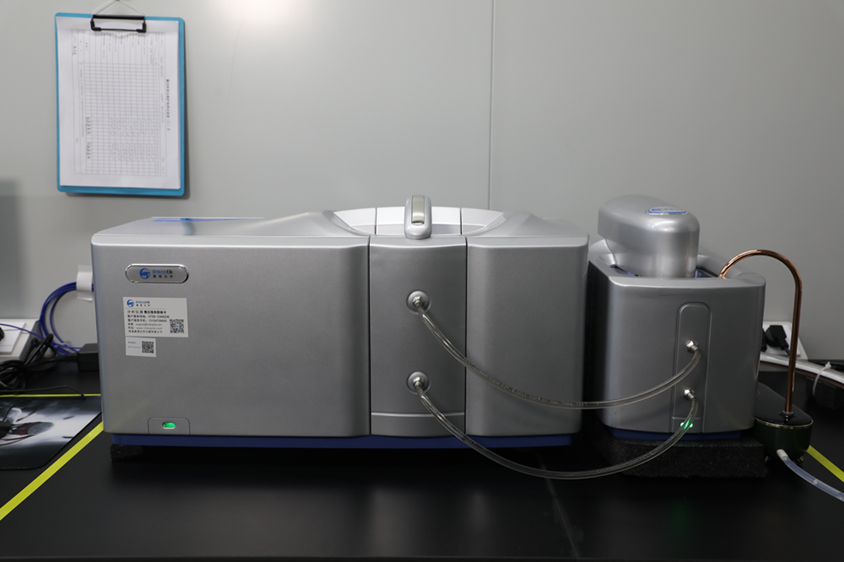
Model: LT3600 Plus
Function: Laser particle size analyzer is an instrument that analyzes particle size by the spatial distribution of diffraction or scattered light (scattering spectrum) of particles. It has been widely used in chemical, pharmaceutical, food, building materials and other industrial fields.
Specifications:
Test range: 0.015μm~3600μm
Accuracy: Dv50 is superior to ±0.6% (NIST traceable latex standard)
Repeatability: Dv50 is superior to ± 0.5% (NIST traceable latex standard)
Measurement speed: up to 20,000 times per second
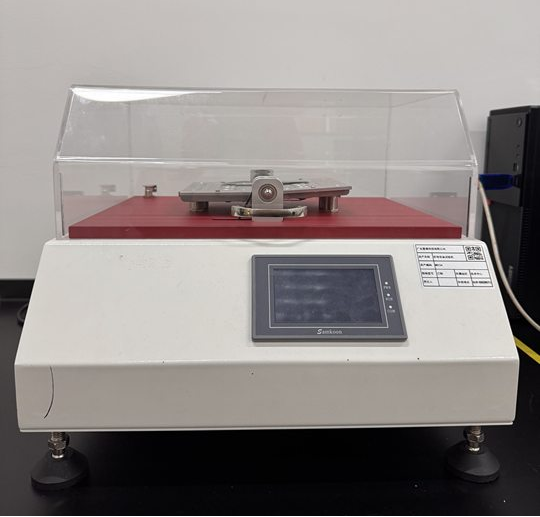
Model: Morion Nanotech self-developed
Function: The bending device tester can simulate the bending process of mobile phones for thin film materials to test whether the long-term bending process will cause fracture and performance impact on the material.
Specifications:
Bend Angle: 0~180℃
Number of bends: 0~999999
Running rate: 0~90times/min
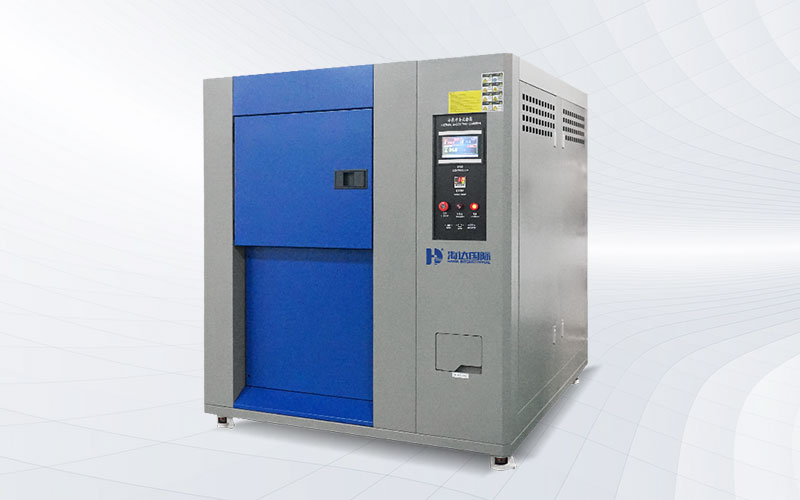
Model: HD-E703-100K55
Function: The cold and heat shock tester is an essential testing device for the metal, plastic, rubber, and electronics industries. It tests whether products are adversely affected by rapid temperature changes due to high or low temperatures. This equipment is typically used for electronic products, automotive parts, and high-tech products that require stringent environmental condition testing and high reliability requirements.
Specifications:
Temperature range: -55°C to 150°C
High-temperature shock range: +60°C to 180°C
Low-temperature shock range: -10°C to -55°C
High-temperature chamber temperature setting range: +60°C to 180°C
Low-temperature chamber temperature setting range: -10°C to -55°C
Shock recovery time: -40°C to 150°C, time ≤ 5 minutes
Uniformity of temperature and humidity: ±2.0°C, ±3% RH
Deviation of temperature and humidity: ±2.0°C, ±3% RH
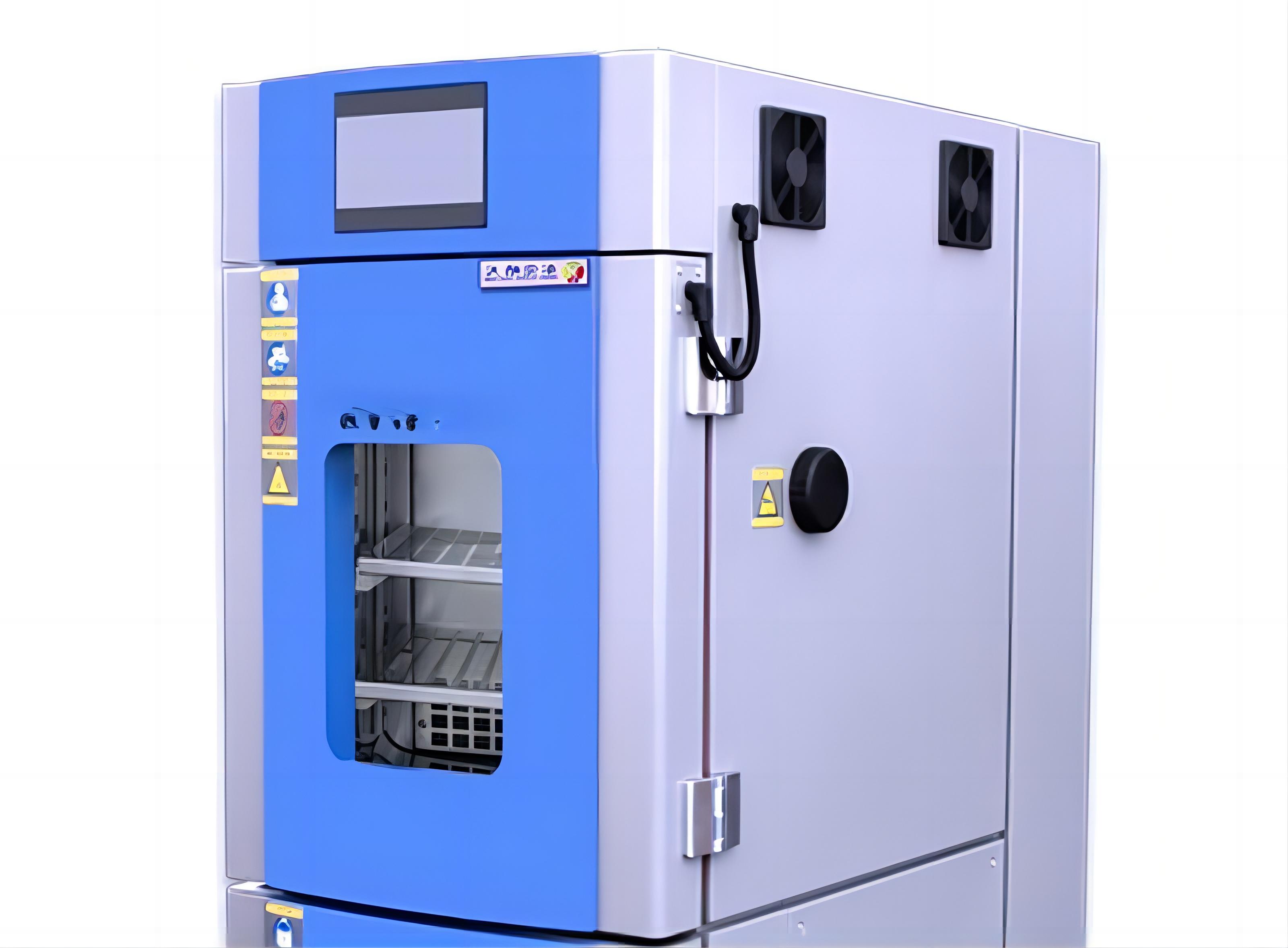
Model: HD800
Function: Programmable temperature and humidity testing equipment can simulate various temperature and humidity environments, suitable for testing electronic, electrical, food, automotive, rubber, plastic, metal products and meet the reliability and stability performance parameters specified under harsh conditions in standards GB/T 2423 and GJB 150A1/4. It provides the basis for predicting and improving product quality and reliability.
Specifications:
Temperature range: -40°C to 150°C
Humidity range: 20% RH to 98% RH
Precision control: ±0.5°C; ±2.5% RH
Uniformity: ±0.5°C; ±3% RH
Heating time: ≥2.5°C/min
Cooling time: average 1°C/min
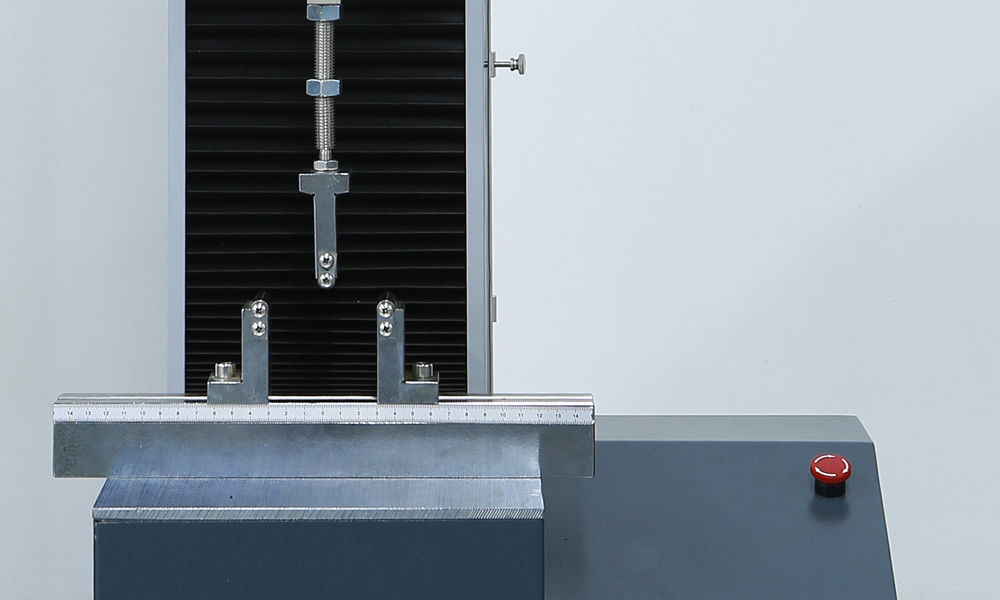
Model: WDW-1000
Function: The microcomputer-controlled universal testing machine is suitable for static performance tests and analysis of metals, non-metals, and composite materials, including tensile, compression, and bending tests. It can determine parameters such as maximum force, tensile strength, bending strength, compressive strength, elastic modulus, elongation at break, and yield strength. The machine can automatically calculate test parameters like ReH, ReL, Rp0.2, Fm, Rt0.5, Rt0.6, Rt0.65, Rt0.7, Rm, and E, and provide data according to national and international standards such as GB, ISO, DIN, ASTM, and JIS.
Specifications:
Test force: 1 kN
Travel range: 700 mm
Displacement accuracy: 0.025 μm
Deformation test accuracy: ±0.5%
Test speed range: 0.001-500 mm/min
Supports up to 500 compression cycles and multiple tensile and bending tests
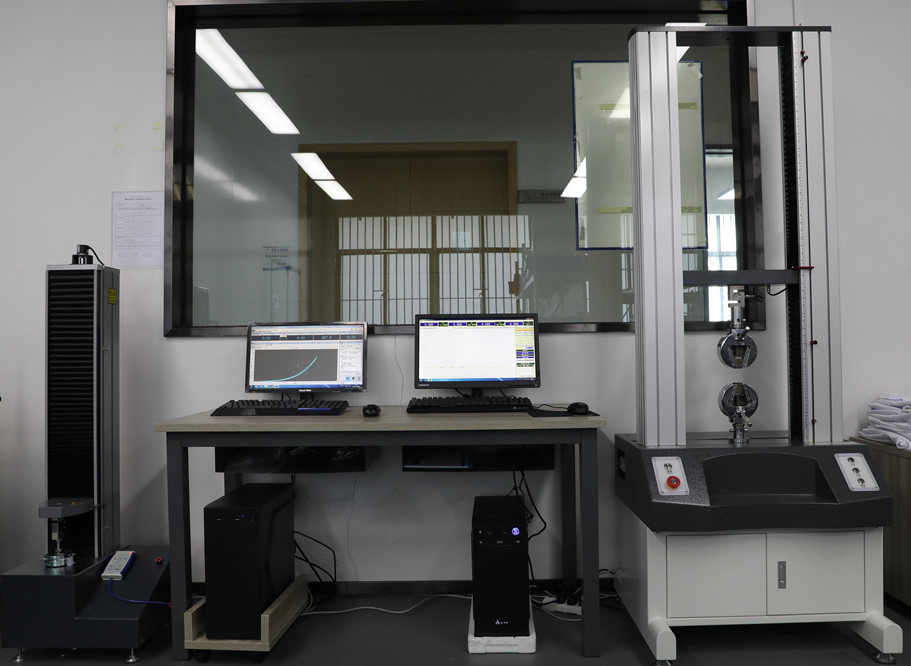
Model: STX-20KN
Function: Universal material testing machines are primarily used for testing and analyzing the mechanical properties of metals and non-metals, including tensile, compression, bending, shearing, and tearing. They can process test data according to standards such as GB, ISO, JIS, ASTM, DIN, and various standards provided by users.
Specifications:
Load resolution: 1/250,000
Test accuracy: ±0.5%
Test speed: 0.01~500 mm/min
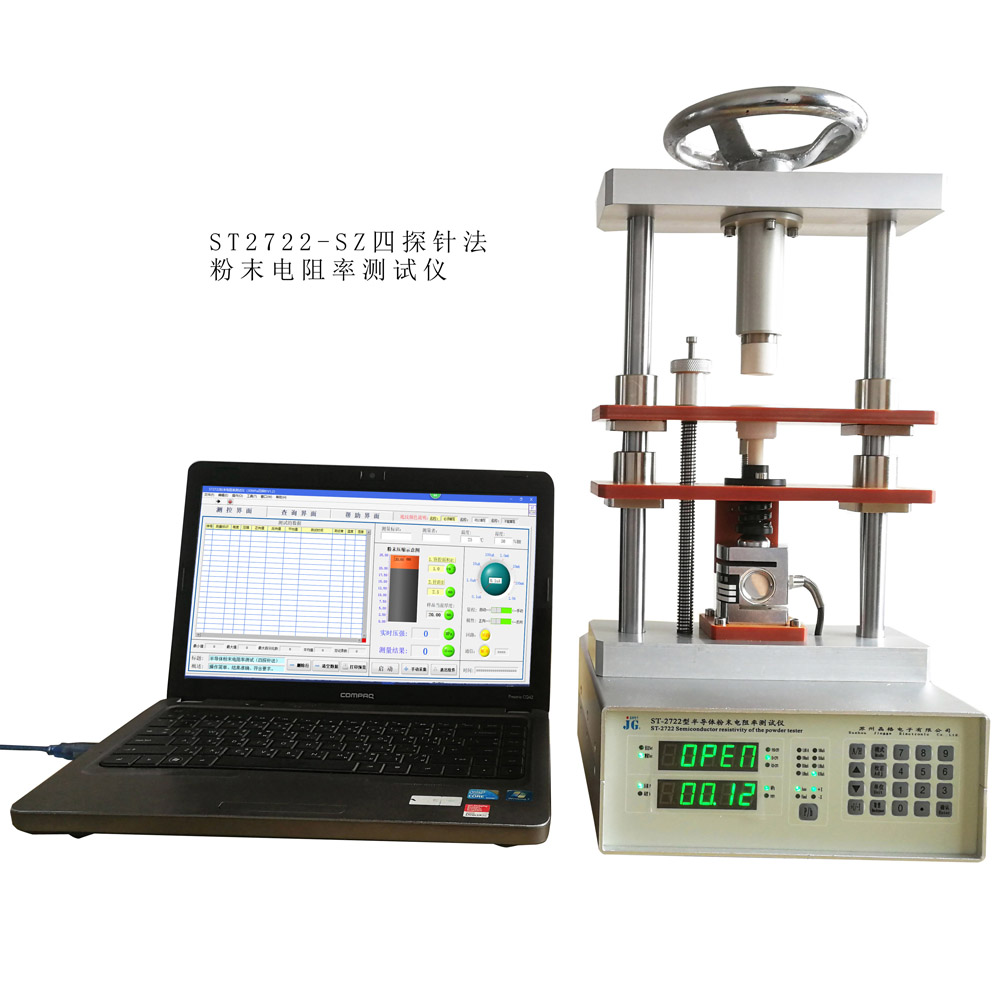
Model: ST2722
Function: The powder resistivity tester uses either the four-terminal method or the four-probe method to measure resistivity, combined with an automated powder pressing machine to test the 'resistivity-pressure' characteristic curve of powders. The four-terminal method complies with the GB/T 24521-2009, YS/T 587.6-2006, GBT 30835-2014, and GB/T 1552-1995 testing standards.
Specifications:
Resistivity: 1×10-6 ~ k×200.0×103 Ω·cm
Resolution: 1×10-6 ~ 0.1×103 Ω·cm
Sample composition: Must not contain components that corrode the test platform and electrodes
Sample particle size: No restrictions
Pressure range: 0 ~ 20 MPa
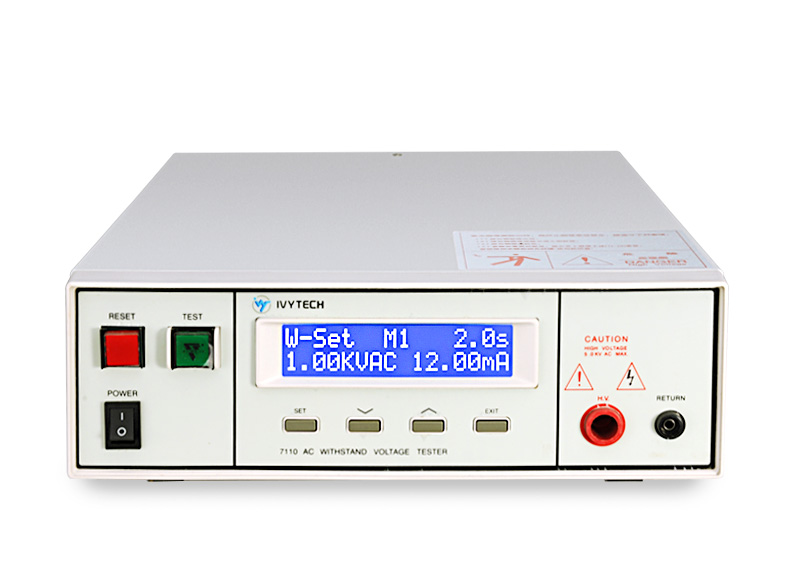
Model: IV7122
Function: Applying a specified high voltage, either AC or DC, between the energized parts and non-energized parts (usually the casing) of an electrical appliance to test the insulation material's ability to withstand voltage.
Specifications:
1. AC Withstand Voltage
Withstand Voltage: 0-5.00 kVAC
Maximum AC Current: 0.10-12.00 mA
Minimum AC Current: 0.00-12.00 mA
2. DC Withstand Voltage
Withstand Voltage: 0-6.00 kVDC
Maximum DC Current: 0.10-5.00 mA
Minimum DC Current: 0.00-5.00 mA
3. Insulation Resistance
Output Voltage: 0.1-1.00 kVDC
Ramp Time: 0.1-999.9 seconds
Hold Time: 0, 0.2-999.9 seconds
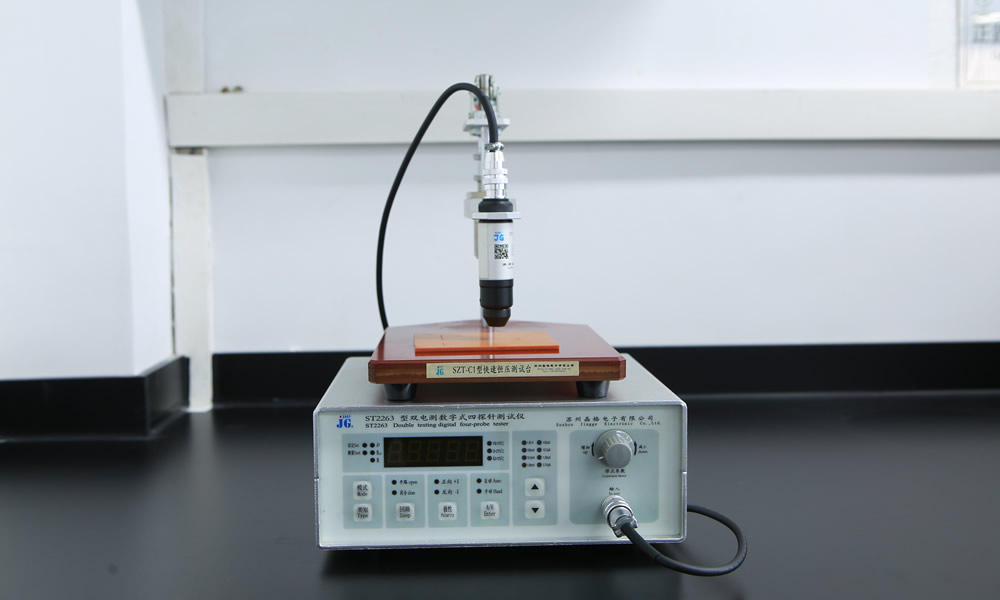
Model: ST2263
Function: The dual-electrode digital four-probe tester is a multi-purpose comprehensive measuring instrument that uses linear or square four-probe, double-position measurement-improved van der Waals measurement method to test the resistivity/four resistance of conductors and semiconductor materials.
Specifications:
1. Measurement Range
Resistivity: 1×10-4 ~ 2×105 Ω·cm, Resolution: 1×10-5 to 1×102 Ω·cm
Sheet Resistance: 5×10-4 ~ 1×106 Ω/□, Resolution: 1×10-5 to 1×102 Ω/□
Resistance: 1×10-5 ~ 2×105 Ω, Resolution: 1×10-6 to 1×102 Ω
2. Material Dimensions
Thickness: 10 mm
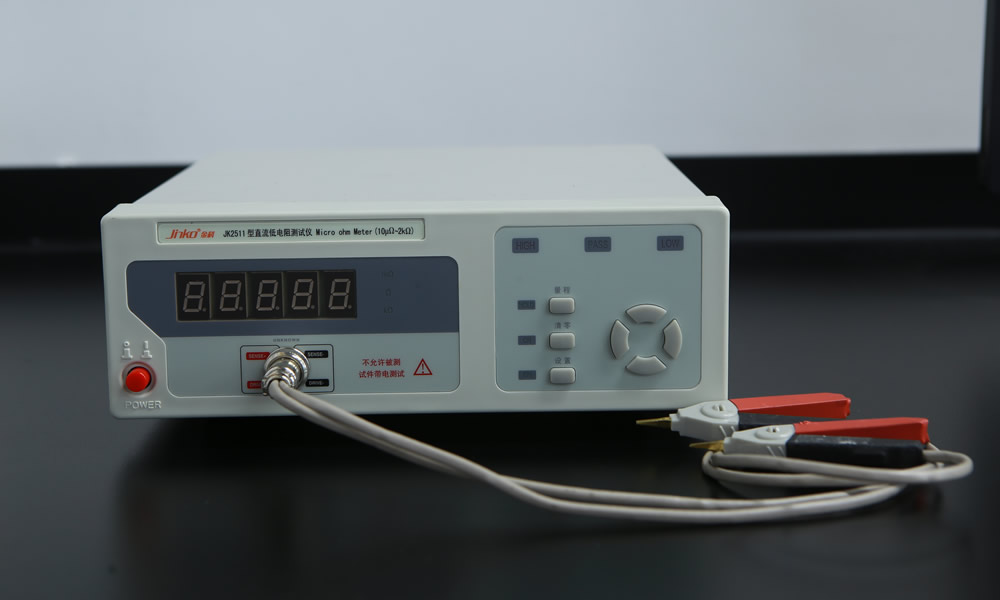
Model: JK2511
Function: The DC low-resistance tester is suitable for testing the copper resistance of transformers and inductive coils, relay contact resistance, switch and connector contact resistance, wire resistance, component solder joint contact resistance, printed circuit board traces and solder holes resistance, as well as metal flaw detection. It can be used on production lines with HANDLER interfaces and GPIB interfaces (optional) to output signals indicating good or bad products, thereby enhancing the automated testing capabilities of the production line.
Specifications:
Display range: 0.01nQ - 199.99kQ
Test current: 100nA, 10nA, 1nA, 100μA, 10μA
Ranges: 200nQ, 2Q, 20Q, 200Q, 2kQ, 20kQ, 200kQ
Resolution for each range: 10μQ, 100μQ, 1mQ, 10mQ, 100mQ, 1Q, 10Q
Measurement speed: 10 times/sec (fast), 2.5 times/sec (slow)
Range mode: Auto, Hold
Trigger mode: Internal, Manual, External
Functions: Upper/Lower limit setting, Pass/Fail discrimination, Range lock, Zeroing, Data protection on power loss
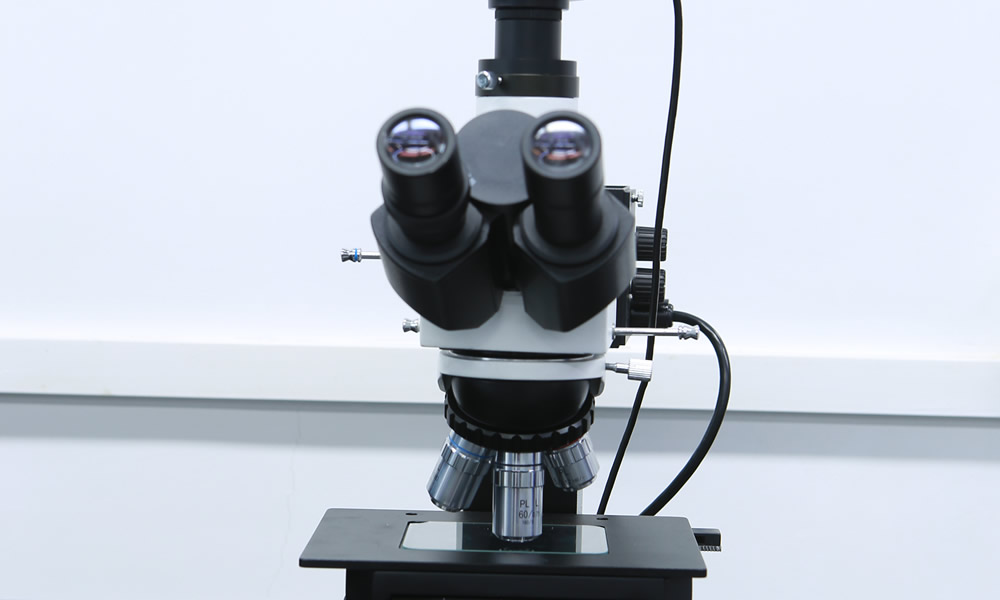
Model: XZJ-2030B
Function: The upright metallographic microscope is used to identify and analyze the structure and surface condition of various metals, alloys and non-metallic materials. It can also be widely used to observe opaque and transparent substances.
Specifications:
Magnification: 50X-1600X
Micro-motion precision: 0.002mm
CCD imaging system
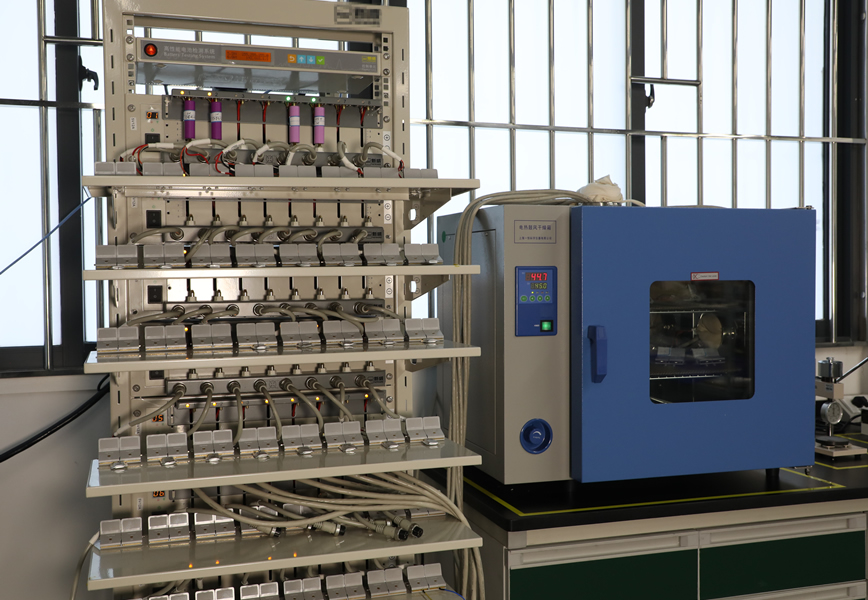
Model: CT-4008T-5V12A-S1
Function: The instrument features multiple ranges, high responsiveness, high precision, and high sampling capabilities. It has a simple structure and is modular. The test modes supported include constant current, constant voltage, constant current and voltage, constant power, constant resistance, and pulse, allowing for comprehensive testing of battery performance.
Specifications:
1. Active power input: 826W
2. Resolution AD: 16-bit; DA: 16-bit
3. Input impedance: ≥1MΩ
4. Voltage: Constant voltage range control: 25mV ~ 5V
Minimum discharge voltage: Dischargeable to 2V at both ends of the clamps, up to 2.5V with a 2m wire
Accuracy: ±0.05% of full scale
Stability: ±0.05% of full scale
5. Current: Output range per channel: 5mA ~ 1A; 1A ~ 6A; 6A ~ 12A
Accuracy: ±0.05% of full scale
Constant voltage cut-off current: 2mA; 12mA; 24mA
Stability: ±0.05% of full scale
6. Power: Maximum output power per channel: 60W Stability: ±0.1% of full scale